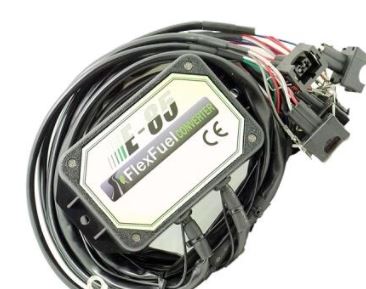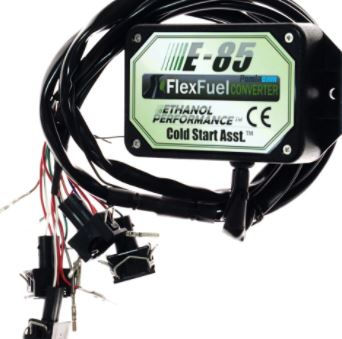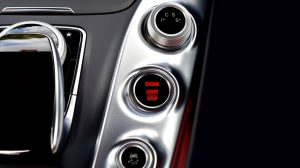Contents
– Bio-ethanol system and ethanol kit
– Ethanol adaptation kit
– Ethanol kit: the consequences
– Ethanol kit: at your own risk
Mount an ethanol kit on your vehicle? Nothing could be more accessible; sites are flourishing on the Internet, promising you all the economic benefits and titillating your environmentalist fibre…
Unlike these professionals involved (too much?) in bio-ethanol, this post will give you objective information about the phenomenon.
Bio-ethanol and ethanol kit
In a context related to climate change, the bio-ethanol sector appears as an alternative to fossil fuels.
Indeed, ethanol is produced by fermentation and distillation of plant products (sugar beet, sugar cane, etc.); it is the E85 proposed by fuel stations (E85 for 85% ethanol and 15% SP95) are offered.
Ethanol adaptation kit
As their name indicates, they are offered as retrofits on gasoline vehicles with indirect injection by many equipment manufacturers (Flex-fuel – Power System – See flex – Fuel cat, etc.).
There are also vehicles offered as original equipment by the manufacturers.
Principle
The kit is grafted onto the fuel injection system; in general, 3 pieces of information are taken from the existing system: water temperature – oxygen sensor – air temperature, to influence the injection time.
Indeed, since ethanol has a much lower calorific value than gasoline, it is mandatory to increase the quantity of fuel injected to benefit from correct combustion.
Pro-kit arguments

The ethanol kits have several advantages:
– economic gain: an installation costs $500, and the price of ethanol of 0.85 $/l is very advantageous;
– less polluting, mainly for CO², a greenhouse gas;
– the octane number (105) is higher than that of gasoline (95) (better combustion at high speed);
– The kit is quick and easy to install and does not alter the original equipment.
Ethanol kit: the consequences
The economic gain
The attractive price of E85 is indeed an argument; however, one must take into account its lower calorific value (1/3 less than gasoline), which translates into over consumption of low and medium speeds (the most used) of more than 30% and engine performance often lower.
Green fuel
The main argument of ethanol supporters is the much lower emission than gasoline… except that at the exhaust, the production of CO² between gasoline and ethanol is almost the same; in fact, the absorption of CO² by plants distilled into ethanol is taken into account, which is legitimate… but what about the production of CO² spit out by the agricultural machinery to raise these same plants?
Vehicle reliability
The ethanol kit strongly questions it: the air-fuel mixture must be dosed as accurately as possible; the more or less elaborate kits can lead to engine breakdowns.
Moreover, a vehicle that has already been driven may not withstand this transformation; in the worst case, it is better to have an engine check-up done (compression – oil analysis, etc.).
For example, a vehicle equipped with original equipment has the following modifications
– specific piston coating;
– reinforced valves and valve seats
– specific injectors (increased flow);
– Reinforced injection rail;
– increased fuel supply pressure (5 bar instead of 3.5 bar);
– reinforced fuel lines (ethanol is more aggressive);
– modified exhaust (to better resist corrosion);
– reinforced oxygen sensor…
These modifications are not applied when installing an ethanol kit as a retrofit!
Cold starts
Cold starts are often tricky. The bio-ethanol rate varies according to the season, from 65% in winter to 85% in summer.
The manufacturer’s warranty
It is cancelled after the installation of a kit!
Unlike a vehicle equipped with the original, where the registration card mentions the transformation, the registration card must be modified after installing the kit. A procedure of approval for significant modification of the vehicle should also be carried out.
Except that the risks of engine damage and the lack of proof of compliance with anti-pollution standards (the kits are not approved) are currently systematically refused by the local authorities.
The direct consequence is that the vehicle may be refused at the technical inspection for non-compliant registration.
Ethanol kit: at your own risk
It does not seem excessive to prohibit an ethanol conversion kit on your vehicle; if you are interested in this technology, it is better to invest in a new or used car with a piece of original equipment…




